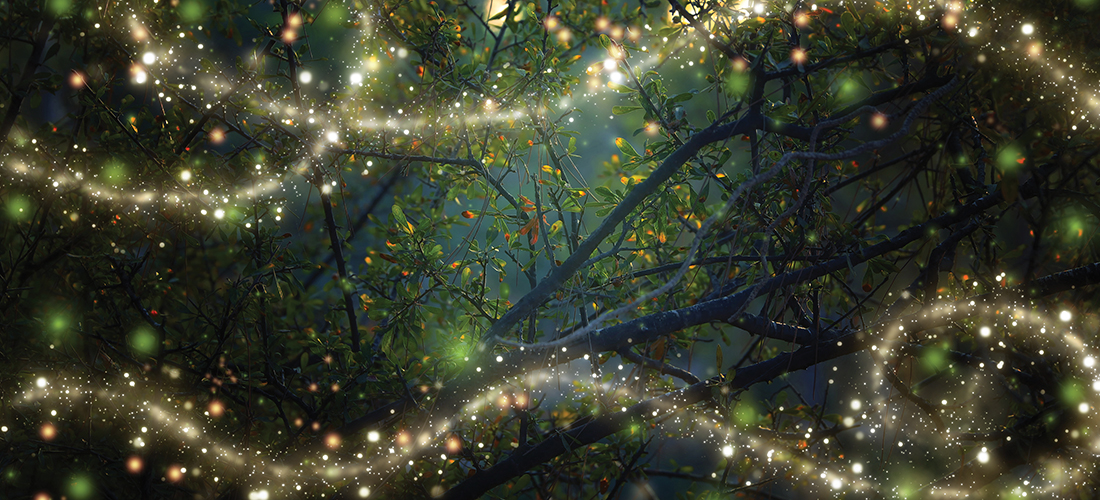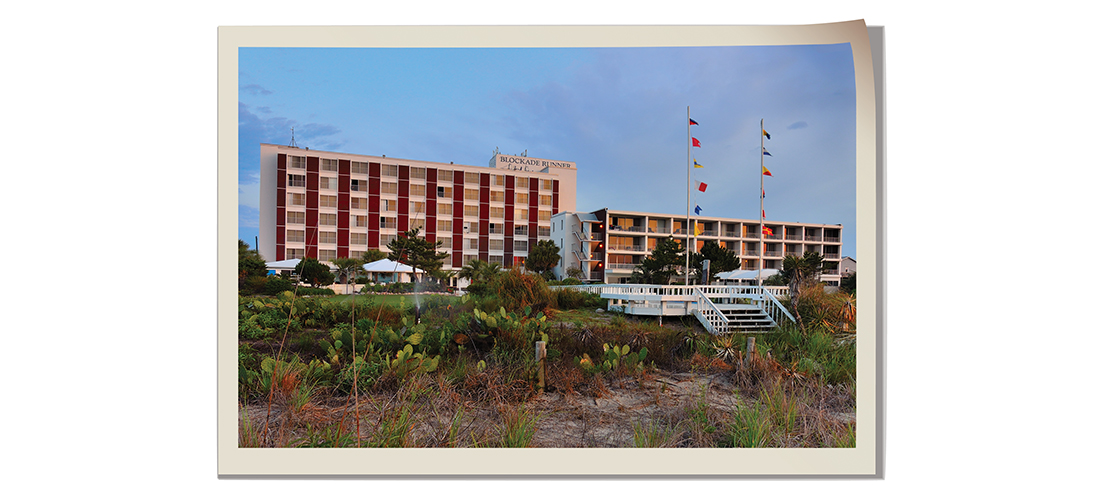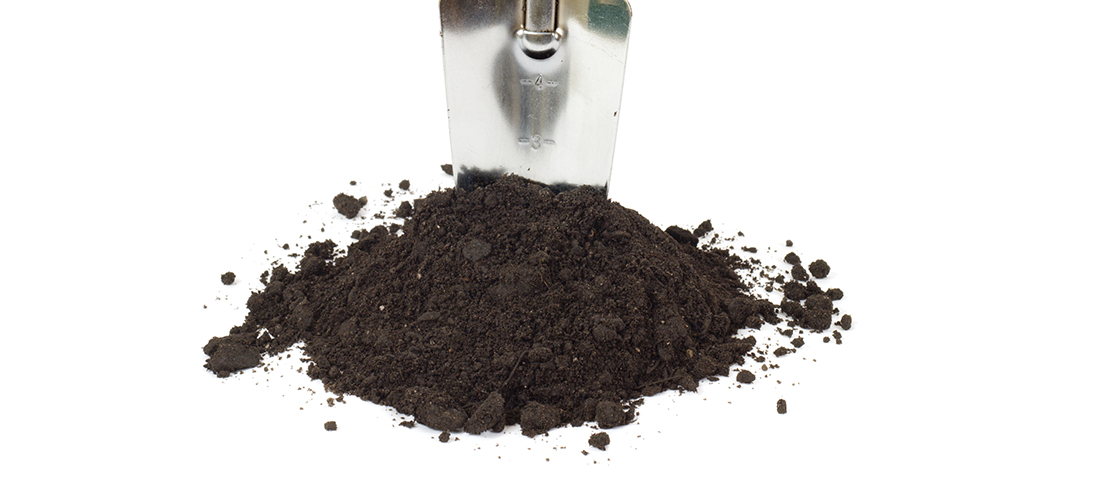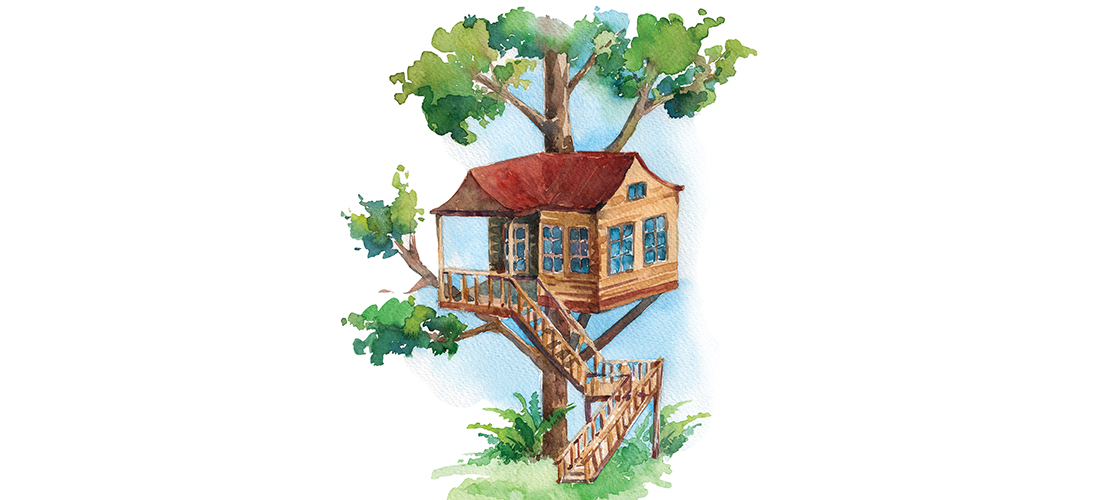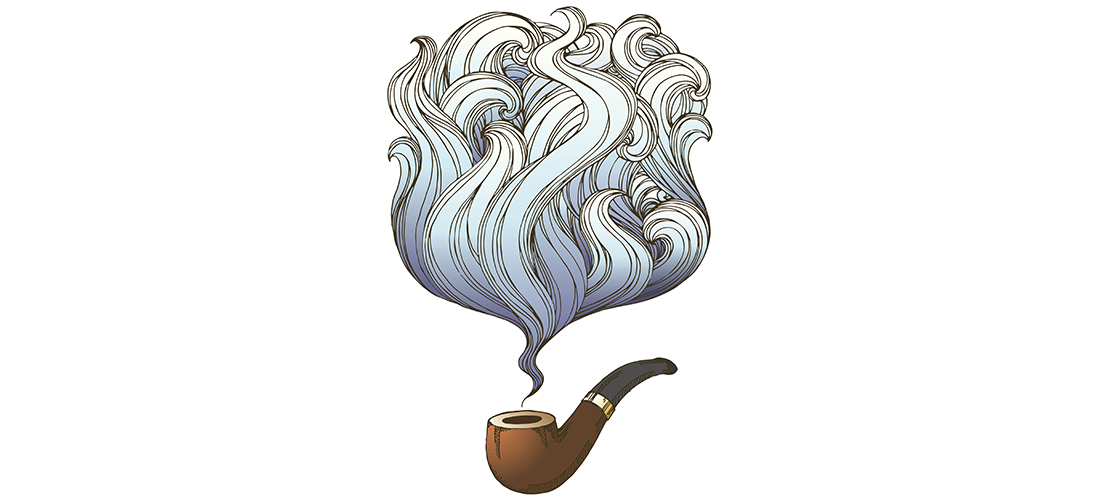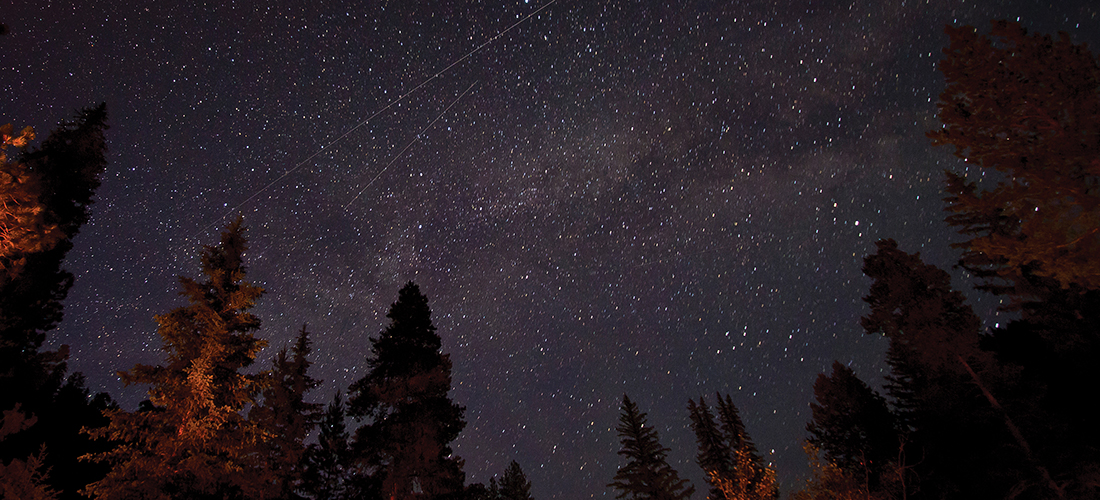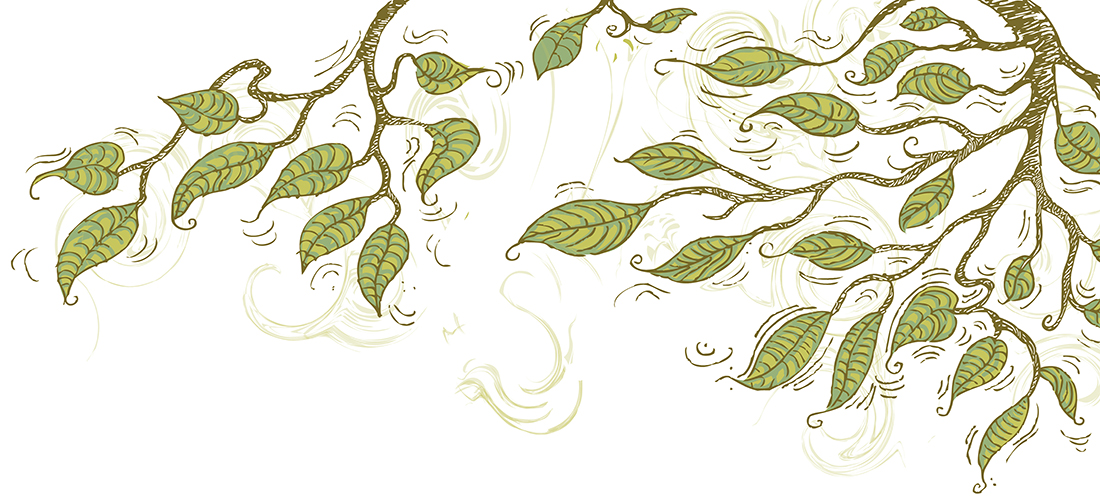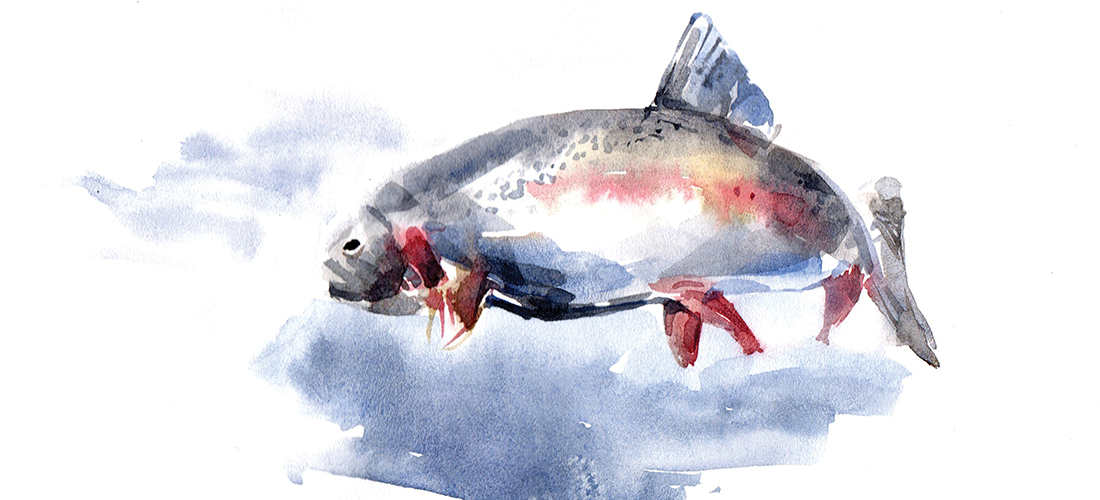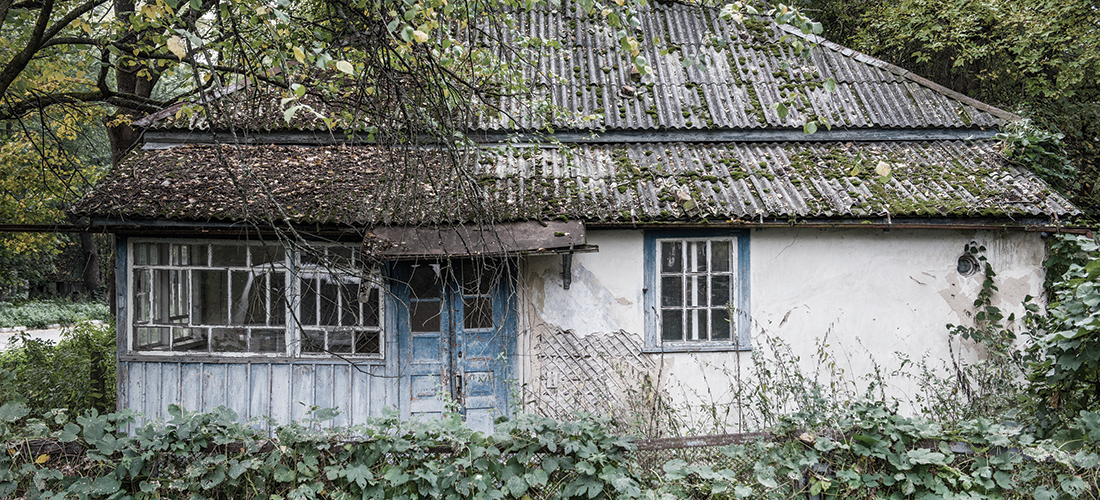Simple Life
The Road to Happiness
It’s an upward climb filled with twists and turns, but joy is in the journey
By Jim Dodson
A dear friend phoned the other day just to say hello, a gifted young poet I hired many years ago as our organization’s first staff writer, who went on to become the senior editor of this magazine. I always knew the time would come when Ashley would fly away to new horizons, which she did after many years of our working together, moving to the mountains where she became a teacher, artist and musician. Lucky for us, her soulful perspective continues to grace the magazine’s pages.
As old friends do, we spent a full half hour catching up on each other’s lives.
I was pleased to learn about her current boyfriend and their travels to art festivals across the Southeast, where they sell handmade crafts created from sea glass, answering the muse and enjoying life on the road.
“You sound pretty happy,” I ventured at one point.
“I am. Maybe never happier. How about you?”
I replied that I was happy at that moment because I was talking to her while sitting in a well-worn Adirondack chair on the lawn where I begin and end most of my day in quiet reflection, watching the dawn arrive and the day depart, usually with Mulligan the dog and Boo the cat by my side. When she called, my companions and I happened to be watching the first fireflies of the season dance in the dusk.
During our years working together, Ashley and I often fell into lengthy conversations about life, love, matters of faith and favorite poets. Among other things, we share an Aquarian sensibility about the future and how we must spiritually evolve in order to get there in one piece as a race of scattered and fractured human beings.
I wasn’t surprised when she asked what things make me happy these days.
I gave her my short and simple list: rainy Sundays, walks with my wife and our dogs, working in my garden, driving back roads, early church, books and movies that stir the heart, phone calls from my grown children and suppers on the porch with friends.
“What about writing?” she asked.
“Cheap therapy.”
She laughed.
“Maybe you should write a book about happiness.”
This notion made me laugh.
Somewhere I’d read that there are more than 500 books on the subject of happiness in print, proving happiness is purely in the eye — or soul — of the beholder.
Besides, I confessed, my kind of happiness was increasingly fueled by things I’d given up or simply no longer needed for the journey, a list that included, but was not limited to, late-night fears of failure, desires for wealth or fame, judging other flawed human beings, even my once all-consuming love of sports was practically gone.
True to the spirit of our talks, I turned the question around on her. Ashley didn’t hesitate.
“I think happiness comes when you are following your heart and doing good things for others.”
Her prescription reminded me of something I’d just read in commentator David Brooks’ outstanding new book The Second Mountain — The Quest for a Moral Life.
“Often,” Brooks writes, “we say a good life is a happy life. We live, as it says in our founding document, in pursuit of happiness. In all forms of happiness we feel good, elated, uplifted. But the word ‘happiness’ can mean a lot of different things.”
Brooks makes an important distinction, for instance, between things that make us happy — a good marriage, a successful career, a sense of material achievement — and the rarer experience of joy.
“Happiness involves a victory for the self, an expansion of self. Happiness comes when we move toward our goals, when things go our way. You get a big promotion. You graduate from college. Your team wins the Super Bowl. You have a delicious meal. Happiness often has to do with some success, some new ability, or some heightened sensual pleasure.”
Joy, on the other hand, he posits, has to do with some transcendence of self, comes almost unbidden when “the skin barrier between you and some other person or entity fades away and you feel fused together. Joy is present when mother and baby are gazing adoringly into each other’s eyes, when a hiker is overwhelmed by the beauty in the woods and feels at one with nature, when a gaggle of friends are dancing deliriously in union. Joy often involves self-forgetting.
”We can help create happiness,” Brooks concludes, “but we are seized by joy. We are pleased by happiness, but we are transformed by joy.”
The day after catching up with Ashley, I was on a winding road deep in the Blue Ridge mountains of Virginia, chasing pieces of Wagon Road history and human stories for my next book — something that always makes me happy — unable to get our conversation about happiness out of my head.
The art of happiness, my version of it anyway, seems to be about an inward journey cultivated by intentionally making room in life for small restorative acts and daily rituals that invite you to step out of your hectic, overscheduled life into what Irish mystics called a thin space, a place where duty and obligation are put on hold and deeper mindfulness is possible. Without my early morning communion with the stars and the grateful prayers I send up like sparks from a signal fire to the gods, my day is curiously never fully complete.
For what it’s worth, I also agree with Ashley the poet and Brooks the wise counselor that service of the smallest order to others in a world where there is so much isolation, loneliness and suffering may be the truest pathway to a happier, more meaningful life, a true “Second Mountain” existence.
Since most of my days are spent in quiet working isolation — Hemingway, not a happy camper, called writing the “loneliest art” — I find myself these days almost unconsciously seeking out opportunities to commit some kind of tiny random act of kindness to a fellow stranger in need. The other day, I chased down a harried mother’s runaway grocery cart in the parking lot of Harris-Teeter. She had an infant on her hip and was struggling to unlock her SUV. Her grateful smile and warm thanks were like a liberating breeze to a weary brain that had been arm-wrestling words and sentences onto the page most of that day.
During our pre-dawn walks around the neighborhood each day, my wife began stopping by the house of an elderly shut-in lady to walk her newspaper from the curb to a chair by her front door. We’ve never seen our neighbor’s face. But the dogs insist on stopping to deliver her paper the final 50 feet. To paraphrase C.S. Lewis on prayer, this minuscule act of neighborliness may do nothing whatsoever for God, but it sure makes us all feel a tiny bit happier.
The 17th-century Buddhist monk Gensei wrote, “With the happiness held in one inch-square heart, you can fill the whole space between heaven and Earth.”
Sometimes, we need to be reminded of this fact. A friend who works with the homeless explained to me that perhaps the hardest things homeless people deal with on a daily basis is a feeling that they are not worthy of noticing or speaking to — are, in effect, invisible travelers in our midst.
This prompted a change a shift in my awareness and behavior, from that of feeling uneasy and even slightly resentful whenever I reach into my pocket to offer whatever modest sum may be there, to making a point of looking in the eyes and sharing a few words of ordinary greeting or simple recognition, maybe even learning a name and sharing mine. We are, after all, all traveling the same road between Earth and heaven.
It’s a lesson I seem destined to repeatedly learn. Watching Notre Dame cathedral in Paris burn live on CNN back in the spring, I was suddenly transported to a rainy July day 18 years ago when my son, Jack, then 10, and I were coming out of the famous cathedral in a thunderstorm. Surrounded by a swarm of tourist umbrellas dashing for cover, as we hurried past a lone ragged man with blind eyes standing in the downpour, simply holding out an upturned palm, a character straight from Victor Hugo, a dignified beggar for God.
No one was stopping. But when I saw my son glance back, something stopped me. I gave my son 100 francs and asked him to go and give it to the man. Without hesitation, he threaded back through the on-rushing umbrellas and placed the folded money into the man’s outstretched hand.
What happened next still gives me goose bumps of unexpected joy — the kind of self-forgetting transcendence David Brooks speaks of.
The blind man placed his free hand gently on Jack’s head, as if bestowing a blessing. Watching, my eyes filled with tears, or maybe simply rain. Or both. “What did he say to you?” I asked as we hurried off to find a dry lunch in a cozy Left Bank bistro.
“I don’t know,” he said with a happy smile. “But it was in French and it sounded nice.”
Last summer, at the end of a walking pilgrimage across Tuscany with my wife and 30 other pilgrims, I skipped the private tour of the Vatican’s famous Sistine Chapel in favor of climbing a leafy Roman hill to a small Greek Orthodox Church where I sat on a simple wooden pew for God knows how long listening to morning prayers being sung in Greek by three exquisite voices.
Save for an elderly woman manning a small stand at the rear entrance of the church, I was the only worshipper in the building, sitting beneath the tiny dome of a stunning blue ceiling painted with stars, angels and saints.
Time completely vanished, taking my weary feet with it.
Unexpectedly, it was the happiest moment of my long journey that week.
On the way out, the old woman smiled and waved me over to her stand, handing me a small gilt-framed portrait of an Eastern Saint. I’m still not sure which one.
When I reached into my pocket to pay, she gave me a gentle smile and nod, waving me on with gentle words.
I have no idea what she said to me. I believe it was in Greek and it sounded nice. OH
Contact Editor Jim Dodson at jim@thepilot.com.

